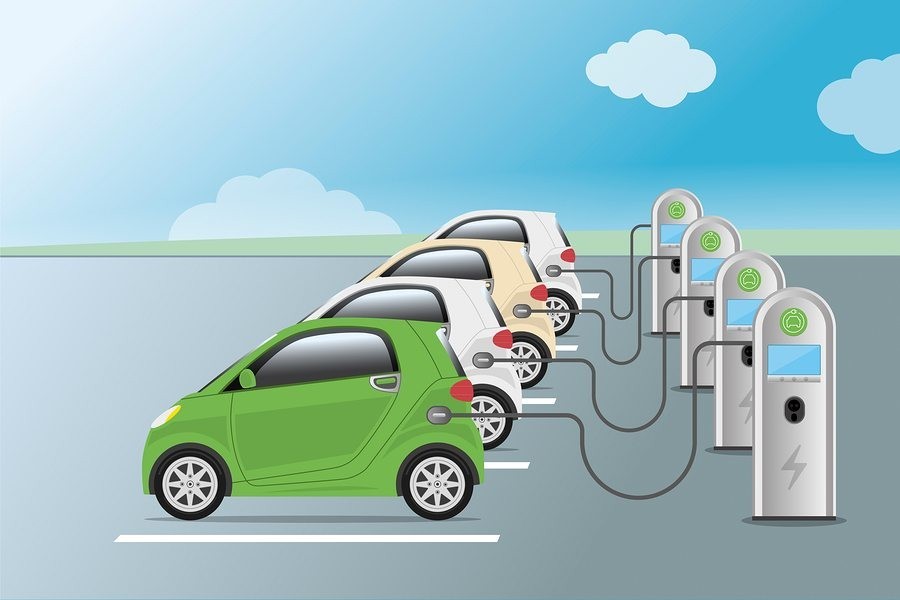
MUNIMA SULTANa AND MONIRA MUNNI
Published :
Updated :

The government has formulated the Electric Vehicle Industry Development Policy 2025, outlining a time-bound action plan to identify and register electric vehicles (EVs) by June 2026 and 2030, with the aim of promoting domestic production and reducing carbon emissions from the transport sector.
The industries ministry, which drafted the policy, has sought opinions from stakeholders before finalising it.
According to officials, the policy aims to enhance domestic production of EV components, reduce import dependence, and strengthen Bangladesh's competitiveness in the global market for EVs and related parts.
As defined in the draft, an EV is a vehicle powered by one or more electric motors using traction power from an internal rechargeable battery. However, battery-powered bicycles and rickshaws -- commonly known as easy bikes -- will not fall under this category.
The policy proposes a range of incentives to promote local EV manufacturing, including tax and VAT exemptions for producers of LED and lithium-ion batteries used in such vehicles.
It also suggests cash incentives and bonded warehouse facilities to encourage exports of EVs and their parts, along with policy and financial support for developing backward linkage industries.
To ensure coordination across agencies, an Electric Vehicle Industry Development Council, chaired by the industries adviser or minister, will be formed to align national and sectoral guidelines.
Officials involved in drafting the policy said Bangladesh remains highly vulnerable to the impacts of climate change, having lost about 11,450 lives and US$3.72 billion to 185 extreme natural disasters over the past two decades.
They added that global warming -- driven largely by carbon dioxide emissions -- has made emission control in the transport sector a priority. Transport is the third-largest source of carbon emissions in Bangladesh, consuming nearly 63 per cent of all petroleum products, while 81 per cent of the sector's emissions come from road transport alone.
Breakdown of road emissions shows that heavy trucks and buses contribute 57.84 per cent, private cars 22.10 per cent, light trucks and other vehicles 19.62 per cent, and motorcycles 0.44 per cent.
Bangladesh has pledged to cut transport-related carbon dioxide emissions by 3.39 tonnes unconditionally and 6.33 tonnes conditionally (with foreign assistance) by 2030.
Officials said developing the EV industry would play a vital role in achieving this target. The expansion of EVs would reduce fuel import costs, create new industrial sectors, and generate employment opportunities in vehicle assembly, charging, and maintenance services.
Welcoming the initiative, Runner Group's Head of Corporate Affairs Mohammad Aminur Rahman said the policy largely addresses the EV industry's challenges but called for stronger coordination among the industries ministry, commerce ministry, and the National Board of Revenue (NBR).
"Due to a lack of coordination among government agencies, the EV industry struggles to grow despite its potential," he said.
At present, Rangs, Mitsubishi, and Hyundai are among the few companies manufacturing electric and hybrid vehicles in Bangladesh, but they face inconsistencies across different tiers of manufacturing.
Mr Rahman explained that not all parts are produced or assembled in a single location, either inside or outside the country, resulting in varying customs duties on different components. Consequently, manufacturers cannot fully benefit from the tax exemptions, he noted.
smunima@yahoo.com,
munni fe@yahoo.com


 For all latest news, follow The Financial Express Google News channel.
For all latest news, follow The Financial Express Google News channel.